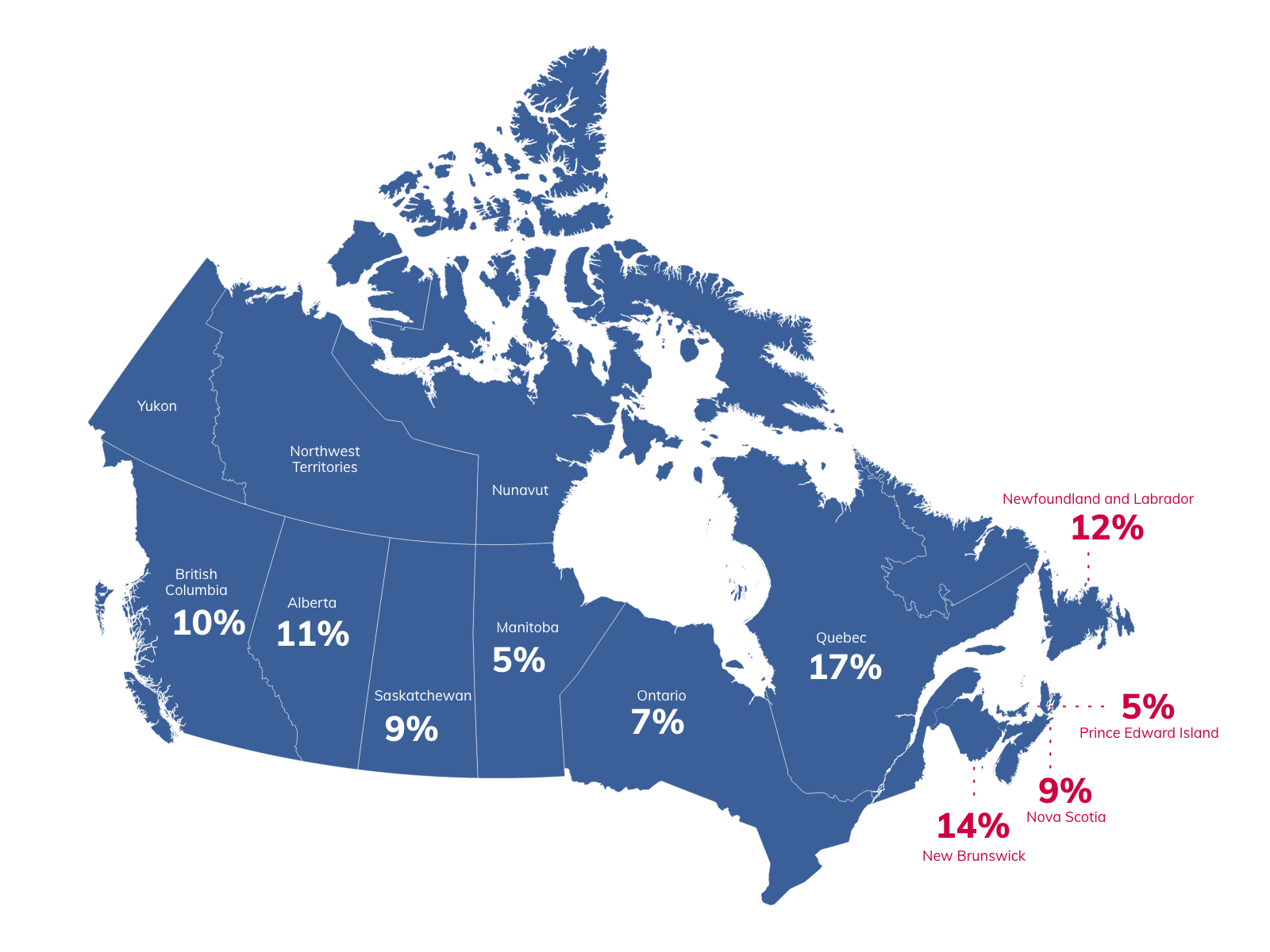One-third of respondents stated that their organization had laid off employees due to COVID-19.
Challenges related to the pandemic that had the greatest impact on employees:
- Adapting to remote work arrangements
- Job performance
- Physical health
- Adapting to on-site work arrangements
Child-care and familial obligations were two of the top three areas most often mentioned of how equity-deserving groups were impacted by the COVID-19 pandemic.
Mental health was the second most often mentioned example of how equity-deserving groups were impacted by the COVID-19 pandemic.
Other areas mentioned included:
- Coping with COVID-19 restrictions
- Reduced hours/opportunities
- Isolation
In terms of what organizations have learned over the pandemic about inclusive hiring, respondents most often mentioned challenges related to finding workers generally, not just people with disabilities.
Other areas mentioned included:
- Being flexible with staff and work arrangements
- Implementing inclusive practices in general
- The need for working with employees with compassion, appreciation, patience, and in a positive work environment
23% of organizations surveyed had difficulty hiring in general during the pandemic.























